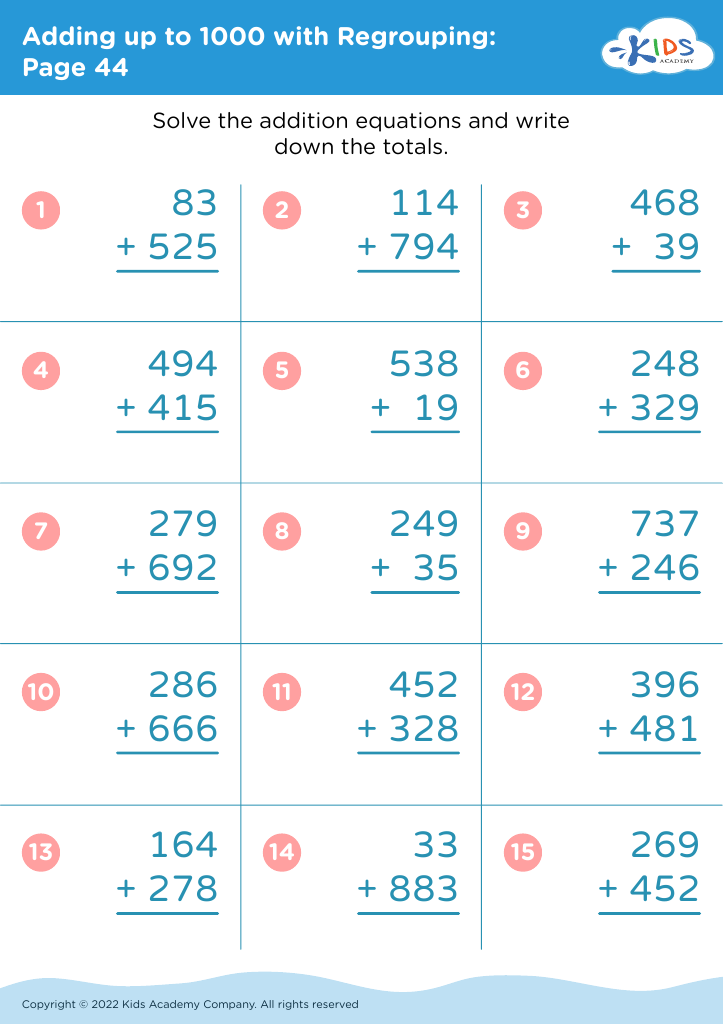Improve counting skills Adding up to 1000 with Regrouping Worksheets for Ages 4-7
3 filtered results
-
From - To
Unlock your child's mathematical potential with our "Improve Counting Skills: Adding Up to 1000 with Regrouping" worksheets, specially designed for ages 4-7. These engaging resources focus on enhancing counting and addition skills through fun and interactive exercises. With beautifully crafted illustrations and step-by-step guidance, your young learner will discover the concept of regrouping while mastering sums up to 1000. Our worksheets promote critical thinking, build confidence, and foster a love for math. Suitable for home or classroom use, these activities ensure a solid foundation in arithmetic, making learning enjoyable and effective for your child. Start their math journey today!
Improving counting skills and the ability to add up to 1000 with regrouping for children aged 4-7 is crucial for several reasons. First, these foundational math skills are essential for developing a child's overall cognitive abilities. Mastery of counting and addition lays the groundwork for more complex mathematical concepts they will encounter later in their education.
Second, early engagement in math fosters critical thinking and problem-solving skills. By mastering regrouping, children learn to approach problems systematically, breaking them down into manageable parts, which is a skill applicable across various subjects and real-life scenarios.
Additionally, counting and addition skills enhance children's confidence in their mathematical abilities. When children understand how to regroup and solve larger sums, they are more likely to enjoy math and less likely to develop math anxiety.
Furthermore, improving these skills allows parents and teachers to better gauge and support a child's learning needs. Recognizing where a child struggles can help target specific areas requiring additional support or practice.
Ultimately, fostering improved counting and addition skills in young children equips them for future academic success, encourages a positive attitude toward learning, and allows for better communication between parents and teachers in supporting educational growth.


















